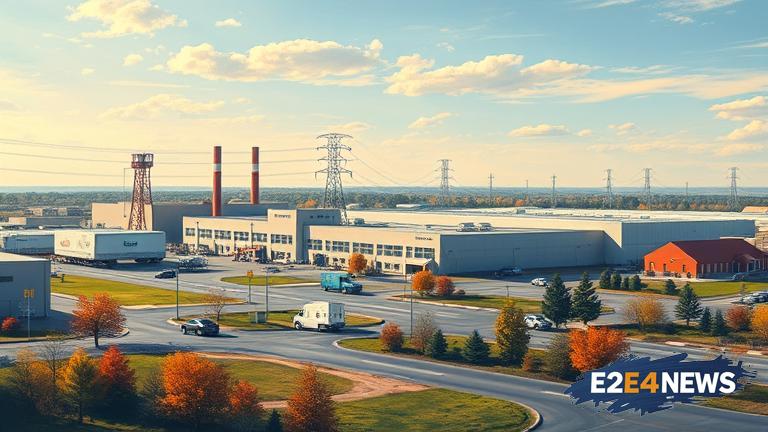In a move that is set to send ripples through the electric vehicle (EV) manufacturing sector, Foxconn, the Taiwanese electronics giant, has sold its Lordstown car factory in Ohio. The sale, which was announced recently, marks a significant shift in the company’s strategy and is expected to have far-reaching implications for the EV industry. The Lordstown factory, which was previously owned by General Motors, was acquired by Foxconn in 2020 as part of its plans to expand into the EV manufacturing space. However, despite initial plans to produce EVs at the facility, Foxconn has struggled to get the project off the ground. The company had initially planned to produce the Endurance electric pickup truck at the factory, but the project was plagued by delays and setbacks. As a result, Foxconn has decided to sell the factory, citing a desire to focus on its core electronics business. The sale is expected to be completed in the coming months, with the new owner set to take over the facility. The identity of the new owner has not been disclosed, but it is believed to be a company with significant experience in the EV manufacturing sector. The sale of the Lordstown factory is a significant blow to Foxconn’s EV ambitions, but it is also seen as an opportunity for the company to refocus on its core business. Foxconn has stated that it will continue to invest in the EV sector, but it will do so through partnerships and collaborations rather than through direct manufacturing. The company has already announced plans to partner with other companies to produce EVs, and it is expected to make further announcements in the coming months. The sale of the Lordstown factory is also expected to have implications for the local economy, with the new owner set to create new jobs and invest in the local community. The factory, which has a production capacity of over 600,000 vehicles per year, is seen as a significant asset, and its sale is expected to attract significant interest from other companies. The EV manufacturing sector is highly competitive, and the sale of the Lordstown factory is seen as an opportunity for other companies to expand their operations. The sector is expected to continue to grow in the coming years, driven by increasing demand for EVs and government incentives to support the industry. As a result, the sale of the Lordstown factory is seen as a significant development, and it is expected to have far-reaching implications for the EV industry. The factory’s location in Ohio is also seen as a significant advantage, with the state having a highly developed automotive industry and a skilled workforce. The new owner is expected to take advantage of these factors to establish a significant presence in the EV manufacturing sector. In addition to the sale of the Lordstown factory, Foxconn has also announced plans to invest in other areas of the EV sector, including battery production and electric motor manufacturing. The company has stated that it will continue to play a significant role in the EV industry, but it will do so through partnerships and collaborations rather than through direct manufacturing. The sale of the Lordstown factory is seen as a significant shift in Foxconn’s strategy, and it is expected to have far-reaching implications for the EV industry. The company’s decision to sell the factory is seen as a pragmatic move, and it is expected to allow Foxconn to focus on its core electronics business. The EV manufacturing sector is highly competitive, and the sale of the Lordstown factory is seen as an opportunity for other companies to expand their operations. The sector is expected to continue to grow in the coming years, driven by increasing demand for EVs and government incentives to support the industry. As a result, the sale of the Lordstown factory is seen as a significant development, and it is expected to have far-reaching implications for the EV industry.
